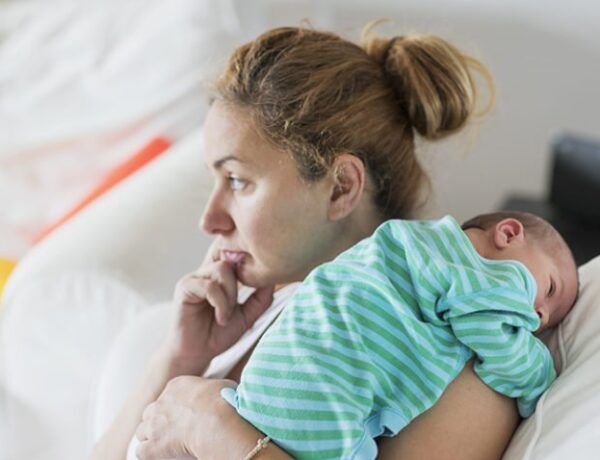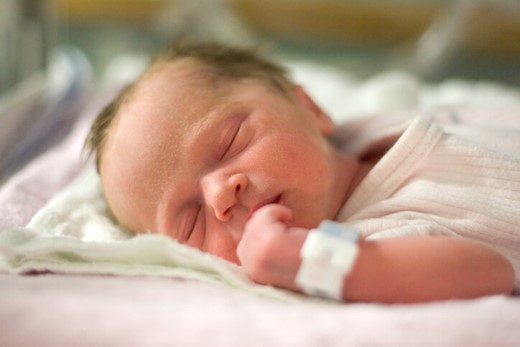Night terrors in babies have become increasingly common. But what is it about? How to handle the situation? We answer these questions in our post.
If you have ever seen a night terror situation, you know that the scene really resembles a horror movie: the baby cries, thrashes, and screams uncontrollably. Night terrors in babies are frightening and look like nightmares but are more dramatic. Although night terrors are shocking for parents, they are usually not a cause for concern. Learn more about it in our post.
How to know if the baby has night terrors?
Usually, night terrors happen during the transition from one sleep stage to another, about 2 to 3 hours after the baby falls asleep. It tends to happen during the non-REM phase, that is when the baby is not in the deepest phase of sleep.
The most common symptoms are intense crying, hustle, increased heartbeat, panting and the baby cannot understand what is happening around him. Another common sign is that he will hardly remember what happened after waking up.
Normally, parents come into the room to calm the baby while he is crying, but since he is unconscious, he cannot notice what is going on around him. Thus, it becomes an almost impossible task to calm him down.
Episodes of night terrors are often distressing and recur over several days or over a period, lasting around 5 to 20 minutes. So, they pass quickly and are usually harmless.
What are the main causes of night terrors?
Night terror in babies occurs due to excessive excitation of the central nervous system during sleep. This excitement can happen for several reasons, such as:
- Excessive tiredness;
- Lack of a sleep routine;
- Significant changes in the environment, such as a noisier day;
- Family history of sleepwalking and night terrors.
Try to analyze how your baby’s day was, if there was any change in the surroundings and if he had his nap for the day.
How to handle night terrors in babies?
There is no magic solution to solving night terrors in babies, but there are steps you can take when you face the problem:
- Make sure your baby is okay and that he doesn’t get hurt when he struggles;
- Avoid waking him up and turning the light on. It won’t work, and your little one will be disoriented and confused, taking even longer to calm down;
- Gently caress your little one in the crib, avoiding picking him up.
There is no cure for night terrors, but you can help prevent them by doing the following:
- Reduce your baby’s stress by avoiding excessive agitation and noise during the day;
- Create a daily sleep ritual, with a schedule;
- Make sure your child takes naps during the day;
- Realize if the night terror always happens at the same time. If so, set the alarm clock a little earlier, and go to your child’s room, trying to touch him and change his position.
Usually, your child doesn’t remember the night terrors the next day, and as time passes and your little one’s nervous system matures, he will no longer have these episodes.
Did you like the post? Subscribe to our newsletter to receive more information like this!
Also, read our article on how to handle separation anxiety in babies.



